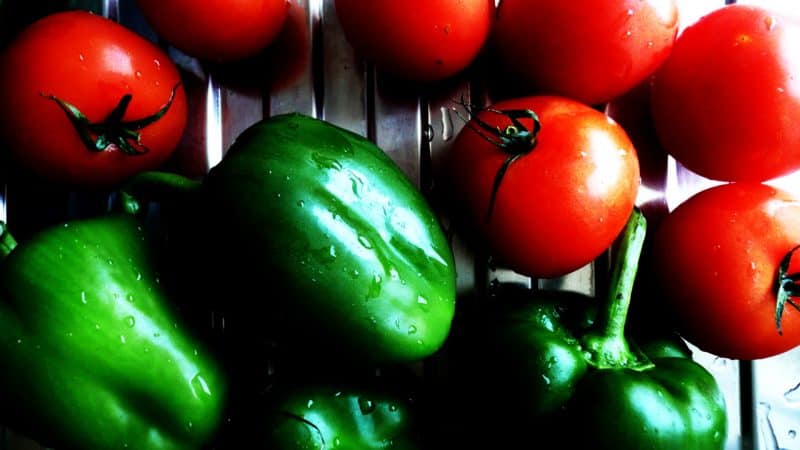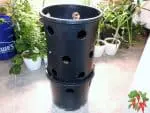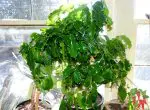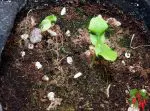This post contains affiliate links. If you buy something from one of our links we may earn a commission. Thanks

Are you growing fruits or vegetables? Uncover the surprising truth about your garden favorites and learn what really defines a fruit versus a vegetable.
Fruit or Vegetable? Key Takeaways:
- Are you growing fruits or vegetables?
- Surprisingly, many plants we typically call vegetables are botanically fruits, like tomatoes and cucumbers.
- A fruit is a seed-bearing structure developed from the ovary of a flowering plant.
- So, when you think you’re growing vegetables, you might actually be growing fruits!
Are You Growing Fruits Or Vegetables?
Are you growing fruits or vegetables? This question might seem simple, but the answer is more fascinating than you might think. Dive into the intriguing world of plant biology to discover why some of our ‘vegetables’ are actually fruits. It’s time to explore the hidden secrets behind your garden produce!
I grow tomatoes and peppers in my indoor garden.
I was wondering if they were actually fruits because tomatoes were once called love apples. So I decided to research this.
Botanically speaking tomatoes and peppers are actually considered fruits and so are many other common vegetables like cucumbers, squash and eggplant.
So What Exactly Is A Fruit?
So here is a good definition of what a fruit is
In a botanical sense, a fruit is the fleshy or dry ripened ovary of a flowering plant, enclosing the seed or seeds. https://www.britannica.com/science/fruit-plant-reproductive-body
Many Vegetables We Grow Are Actually Fruits
I must admit I was really surprised at how many vegetables that we grow are really fruits.
Maybe my website should be called Indoor Fruit Grower instead of Indoor Vegetable Grower.
So tomatoes and peppers are actually fruit . But many other vegetables are also fruit. Here is how I grow tomatoes
https://www.indoorvegetablegrower.com/dwc-tomatoes/
Sweet Or Savory
Generally, most of us consider fruits to be sweet and vegetables to be savory.
But tomatoes can actually have a lot of sugar in them and so can acorn squash (another fruit) and there are others like peas, yes they are considered a fruit too.
13 Vegetables That Are Actually Fruits
1. Tomatoes
2. Peppers
3. Pumpkins
4. Squash
5. Corn
6. Cucumbers
7. Peas
8. Green beans
9. Eggplant
10. Okra
11. Olives
12. Avocados
13. Zucchini
I must admit I was very surprised that most of the vegetables I grow are really fruits. Are you?
But I also wanted to know why plants do this. I really cant think of anything that nature does for no reason.
As it turns out the reason is really pretty simple. Reproduction.
The outside of the fruit protects the seeds on the inside. So the fruit is actually a means of seed dispersal.
Birds and other animals can eat the fruit and help spread the seeds. So the plant seeds have a chance to not only grow but to grow in a new environment.
So Are You Growing Fruits Or Vegetables?
The simple answer is we are growing both. You have probably heard the expression “the fruits of our labor” and I think that includes vegetables too.
FAQs
Got questions about growing fruits or vegetables? You’re not alone! Many garden enthusiasts wonder about the best ways to nurture their plants.
Below, find answers to some common queries that will help your indoor garden flourish.
Q. What is the botanical difference between a fruit and a vegetable?
A. Botanically, a fruit is the part of a plant that develops from the ovary after flowering and contains seeds. Vegetables include other plant parts like roots, leaves, and stems.
Q. Are tomatoes and cucumbers considered fruits or vegetables?
A. Despite common usage, tomatoes and cucumbers are botanically classified as fruits because they contain seeds and grow from the flower’s ovary.
Q. Can a plant part be both a fruit and a vegetable?
A. In culinary terms, yes. Some plant parts, like squash, are used as vegetables in cooking but are technically fruits by botanical definition.
Q. Why are some ‘vegetables’ actually fruits?
A. This mix-up often occurs due to the culinary usage of these plants. While botany classifies them based on seed-bearing structures, cooking categorizes them by taste and usage.
Growing Fruits and Vegetables Indoors: Conclusion
Indoor gardening, focusing on fruits and vegetables, is an excellent step towards a sustainable and eco-friendly lifestyle.
Growing fruits and vegetables indoors is a smart, space-efficient way to embrace sustainable living. Let’s wrap up with these key points:
Optimal Space Usage:
Indoor gardening is a perfect solution for those with restricted outdoor space, making it ideal for apartment living or homes with small yards.
Environment Control:
By gardening indoors, you gain the ability to control critical factors like light, temperature, and humidity, ensuring your plants thrive regardless of the season.
Diverse Planting Options:
From botanically classified fruits like tomatoes and peppers to traditional vegetables, indoor gardening allows for a broad range of plants, catering to diverse tastes and nutritional needs.
Sustainability and Health:
This practice reduces your ecological footprint and provides healthier, chemical-free produce compared to some store-bought alternatives.
In summary, whether you call them fruits or vegetables indoor gardening is not just about growing food; it’s a journey towards a more self-sufficient and environmentally conscious way of living.





